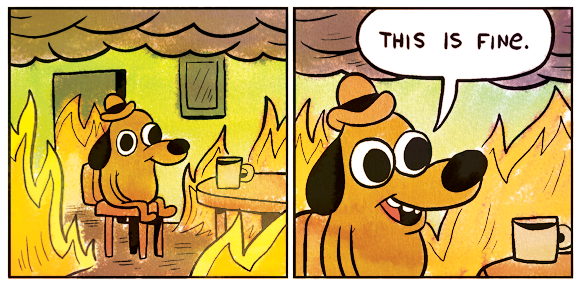I've been wanting to do a blog post specifically on anxiety for a while now, but there were a couple of reasons why I was holding off on it. For one, there's such a wealth of information already presented online regarding the topic. It's a mental health issue that could always use more understanding and compassion, but the knowledge is out there and accessible. There's also a lot of innovative ways to manage it - including mindfulness exercises, meditation, cognitive-behavioral and experiential approaches, narrative therapy, relaxation and breathing techniques, and we haven't even talked about considering medication management yet.
With that said, I still felt there were some worthwhile things to share from my professional and personal experiences regarding anxiety:
Anxiety, much like ADHD, unfortunately share a stereotypical presentation that is often misconstrued. People who suffer from anxiety aren't exclusively individuals who constantly worry about things and suffers from panic attacks from time to time. Anxiety can manifest in different ways, such as anger, depression, substance abuse, etc. as a means of trying to cope.
Anxiety often has comorbidity, meaning the presence of two or more chronic disorders. This does not mean that someone with anxiety must absolutely suffer from something else, but it increases the chances of the individual struggling with an additional mental health issue. This is important because it gives us a more comprehensive context in understanding, addressing, and treating mental disorders.
Managing anxiety is very tough and requires an aggressive approach. You're literally teaching your mind to reorganize thoughts, practice behaviors to limit cognitive distortions, and you're re-training your body to respond more appropriately to reduce the instances of that somatic alarm system from going off regularly. And that's when you're prepared and willing to do so. Sometimes you're too exhausted, it's on hour fourteen of your day and you just don't have much left in the tank to keep it together. I've seen many people successful in managing it, both professionally and personally, but it should never been taken lightly.
A common theme of mindfulness, meditation, yoga, etc. is the goal of slowing down the mental processing. When anxiety is heightened, it's often described that one is experiencing "racing thoughts," so slowing them down to a speed that makes them less overwhelming to deal with has been deemed to be very helpful. Though the approaches listed above have been critical in anxiety management for many, that doesn't mean you can't be creative in finding a way to slowing down those thinking patterns. Going for walks, exercising, participating in a passion or hobby, and reading for pleasure are excellent ways to accomplish this.
Don't shame people with anxiety. By shame, I don't just mean making fun of them. I also mean, in a very subtle way, imply that what they're going through is inappropriate or unacceptable. Phrases with positive undertones such as "it's not that big of a deal," "I don't see why you're upset," "you're over-analyzing the situation," and everyone's personal favorite, "you need to calm down." No one with anxiety has ever benefited from any of these - especially the last one. Want to be helpful? Be present with them and encourage them to see through their emotions so that they de-escalate properly. Let them process it verbally with a non-judgmental attitude. Validate their experience.
One of my favorite professors (and people) I've ever worked with and had the pleasure of knowing is Joan Fischer, my first supervisor and practicum teacher at the University of Holy Cross. She often preached of "equifinality," which she defined as "many paths to God" and encouraged us to work with those suffering with the understanding that there are many different roads to a life of wellness. There are many, many ways to treat anxiety. Some ways work better for some than others. If cognitive-behavioral therapy seems too cold and clinical, try meditation and mindfulness, and vice versa. Workshop it, and don't give up hope if something doesn't go as well as planned.
Thoughts? Feel free to e-mail me at desongytherapy@gmail.com and thanks for reading!
